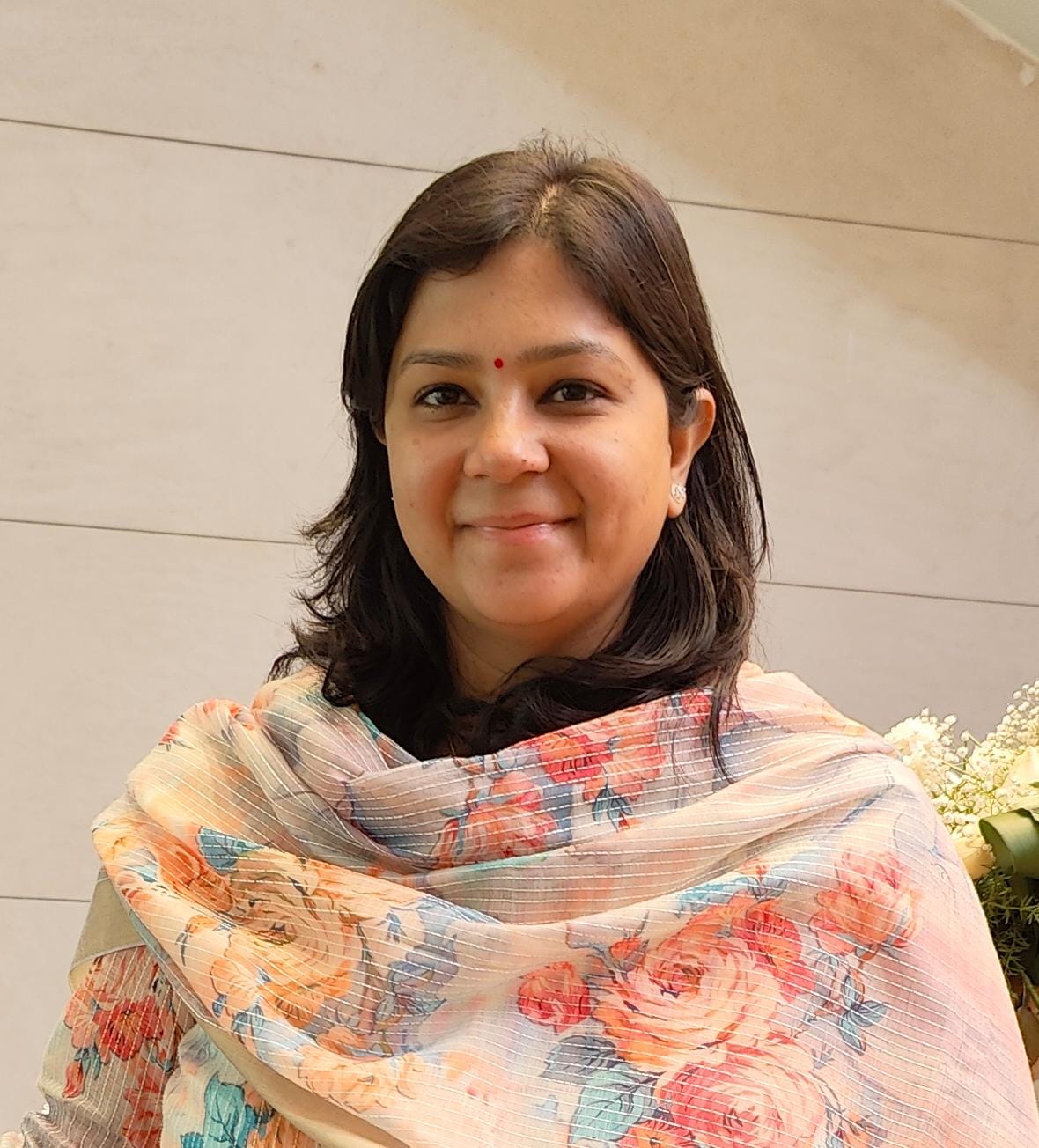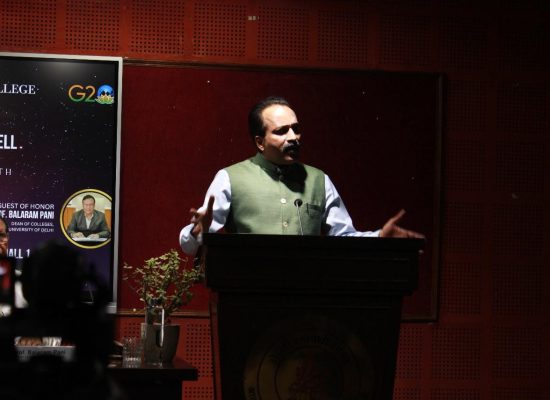Atma Ram Sanatan Dharma College (ARSD), University of Delhi organized an interaction lecture with Honourable Chief Guest, Shri S. Somanath, Chairman, Indian Space Research Organisation on 20th March, 2023 at college premises. To grace the event Prof. Balaram Pani, Dean of Colleges, University of Delhi was invited as the Guest of Honour. College NCC wing escorted the guests with guards of honour with full zeal and enthusiasm. Principal, Prof. Gyantosh Kumar Jha and Internal Assurance Quality Cell (IQAC), Coordinator Dr. Vintat Tuli welcomed the dignitaries and briefed the gathering about the scientific progress of the college. Prof. Gyantosh Kr. Jha expressed his gratitude toward Shri S. Somanth to spare his valuable time for interaction with students of ARSD College and mentioned that it’s a lifetime opportunity for students of the college to get insights of ISRO from the Chairman, ISRO himself. He also commended Prof. Balaram Pani for his extraordinary leadership quality and thanked him for taking out time from his busy schedule to grace the event. Prof. Balaram Pani during his address with students emphasized on the importance of having clear objectives to be successful in life and better future. He motivated students to generate their passion and interest in a specific field and to implement their goals with honesty, punctuality, determination, and hard work.
Shri S. Somanath addressed the gathering and shared his journey in ISRO with students. He started his interaction by acclaiming the students as the future of India. He mentioned that Physics is a diverse subject which has various domains assimilated in it. “Wondering is most integral to being a physicist, you can’t be one if you don’t wonder” quoted by Shri S. Somanath. He explained how the sky is the projection of the past event and light travels light years to reach earth which creates the blinking stars in the night sky. He gave an example of how the James Webb telescope can see light from 13.5 billion years away. He explained that only space technology can help us understand the creation and structure of the universe. He said that Humans are incapable of physically seeing the smallest and biggest entities of the universe but humans surely can understand them well. He asserted that space technology can help us understand the creation and structure of the universe. He also gave information about the ASTROSAT satellite of ISRO that observes deep space. He also told students about the sounding rockets to study the electromagnetic anomalies in the upper atmosphere caused by cosmic rays. Shri S Somnath claimed that we human beings are the “Children of stars”. He explained the phenomenon of the explosions of various homogenous stars which lead to the formation of earth, creation of life. Today also, constantly stars are exploding in supernovae to create more entities. He gave an example of the Hubble telescope, how it observed the darkest corner of the universe with a static lens for 10 days and the compiled image formed still has various illuminating galaxies. He said that it is beyond humans’ imagination, what the universe brews. He talked about string theory and how it introduced 11 dimensions of space which humans can’t comprehend.
For career guidance, he explained how ISRO welcomes people from diverse fields including subjects like Physics, Mathematics, Biology, Computer science, Chemists, Engineers and Agriculture scientists. Shri S. Somanath informed students about ISRO’s laboratories subsidiaries specific to physics like–NARL, Physics research Laboratory, Indian Institute of Astrophysics, etc. He proudly explained students, how ISRO is taking lead in developing its own rockets, satellites and developing new technologies at International level which is necessary for building a strong nation. He said he hopes for the next technological marvel as even today space technology has its limitations. With open discussion with students he discussed about the privatization of space and opportunities available at ISRO. To conclude, he claimed that the most important thing is how science impacts society and how science is applied in everyday life. Students participated very enthusiastically in the event and the session came to end with the Vote of thanks by Dr. Vinita Tuli.










